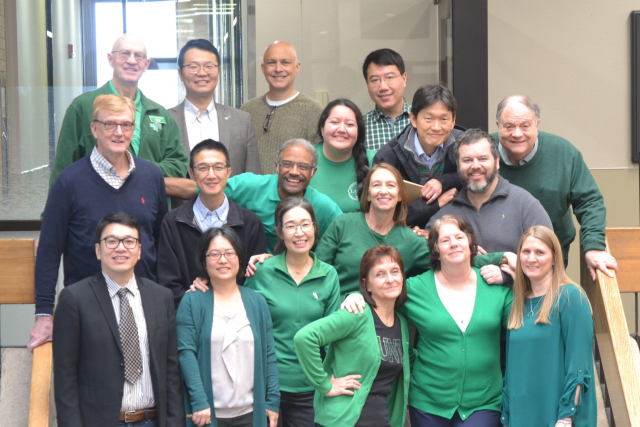Thank you for your interest in the Department of Economics at the University of North Texas. Economics is a social science in that, at its core, it is the study of human behavior. Given that over eight billion people on earth make hundreds of decisions daily, there is a seemingly endless range of topics that can be considered for economic analysis. Beyond that though, economics graduates are ideally suited for life “in the real world” after graduation. This is because, among the social sciences, economics is the discipline that is most ideally suited to business and policy applications.
You may ask “Why is that?” Well, the behavioral model economists start as the basis of decision-making focuses on the incentives that people face. Some of the strongest incentives include things like prices and profits, taxes and subsidies, and laws and regulations, wages and costs of production. These are exactly the variables that determine how businesses operate and that governments use when they develop policies.
If the topic of economics and its impact on your future options is not enough, our department is home to excellent instructors, including many teaching award-winners, dedicated to your learning. Our faculty come from diverse backgrounds and have a wide range of research and teaching interests. We have courses that focus on the economics of the environment and natural resources, public policy, cities, labor markets, international trade, macroeconomics, game theory, business management, discrimination, as well as statistics and several econometrics courses.
The UNT Department of Economics is home to over 150 undergraduate majors and 30 graduate students. The undergraduate majors are pursuing one of three degrees offered by the department: the B.A. in Economics, the B.S. in Economics, and the B.B.A. in Economics. At the graduate level, we offer an M.S. degree in economics.
Students in our department are encouraged to join the ESO (Economics Student Organization). The ESO has semi-weekly meetings. At any given meeting, you might find a professor give a lecture on a topical issue, or presentation on resume building, or maybe the members will simply be playing an economics themed game.
Our majors can join the AAC (Alumni Advisory Council) and begin to interact with our extensive network of alums. The alumni group hosts workshops and panel discussions so that undergraduates can learn about and prepare for life beyond UNT.
I’d be remiss if I did not mention our excellent graduate program. The program serves two types of students. For those interested in a stepping stone to a PhD program, students gain the mathematical skills needed to succeed at the next level, as well as first courses in graduate-level micro and macro theory and econometrics skills beyond what is offered at more PhD programs. Our Master’s alums have graduated from PhD programs ranging from University of Texas, University of Oklahoma, Purdue University, Georgia State University, the University of Calgary, among others. For the two-thirds of our Master’s students who are interested in joining the workforce as economists, the econometric skills and applied theory they learned at UNT serves them well. Our alumni work in everything from consulting, to data analytics, to financial services to government policy. I could not be more proud of our Master’s program and its alums.
I thank you for your interest in our department, and I hope to meet you around Wooten Hall!
Go Mean Green!
Jeffrey Rous, PhD
Chair, Department of Economics
University of North Texas
Department of Economics
1155 Union Circle Box 311457
Denton, Texas 76203-5017
